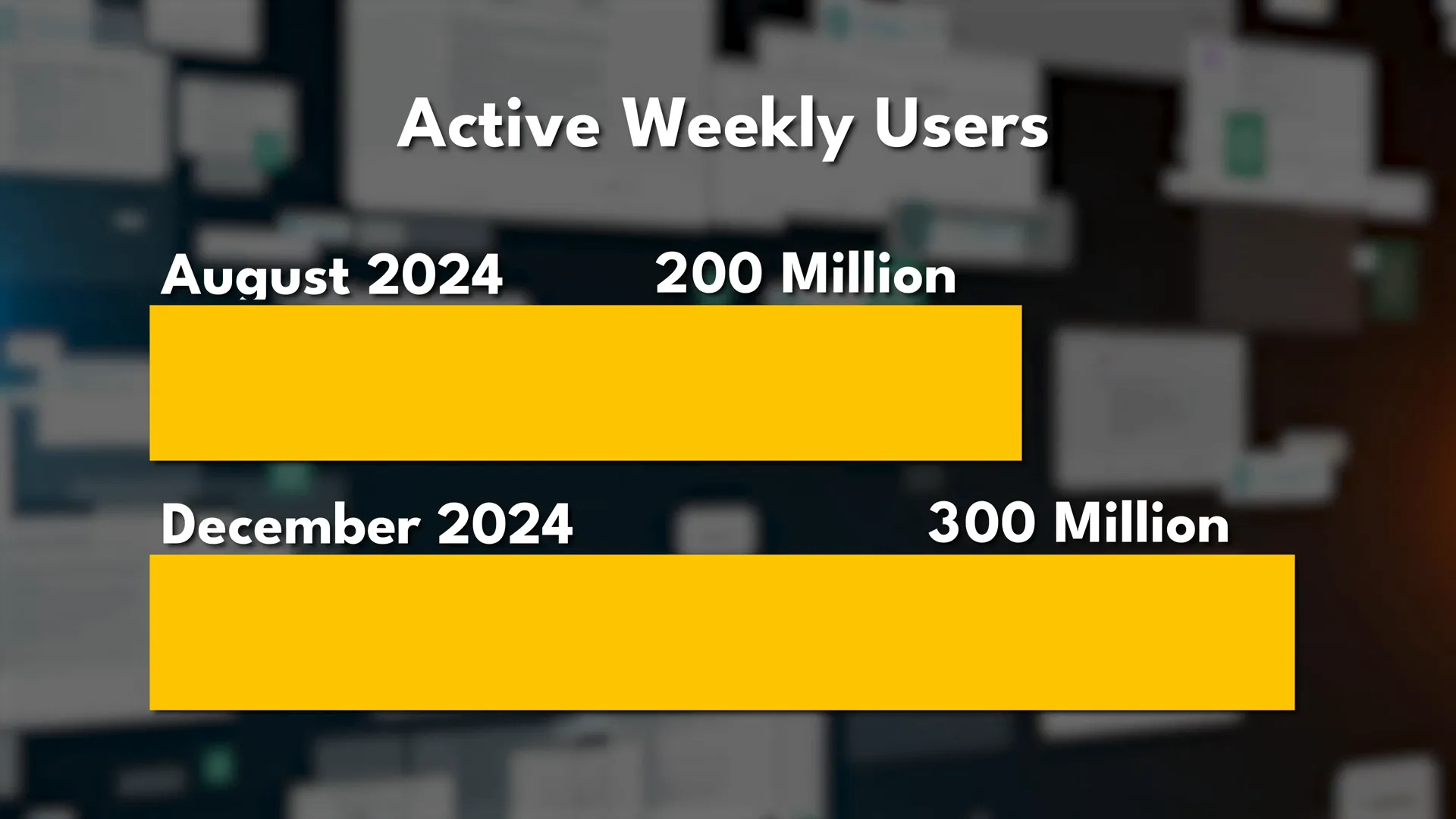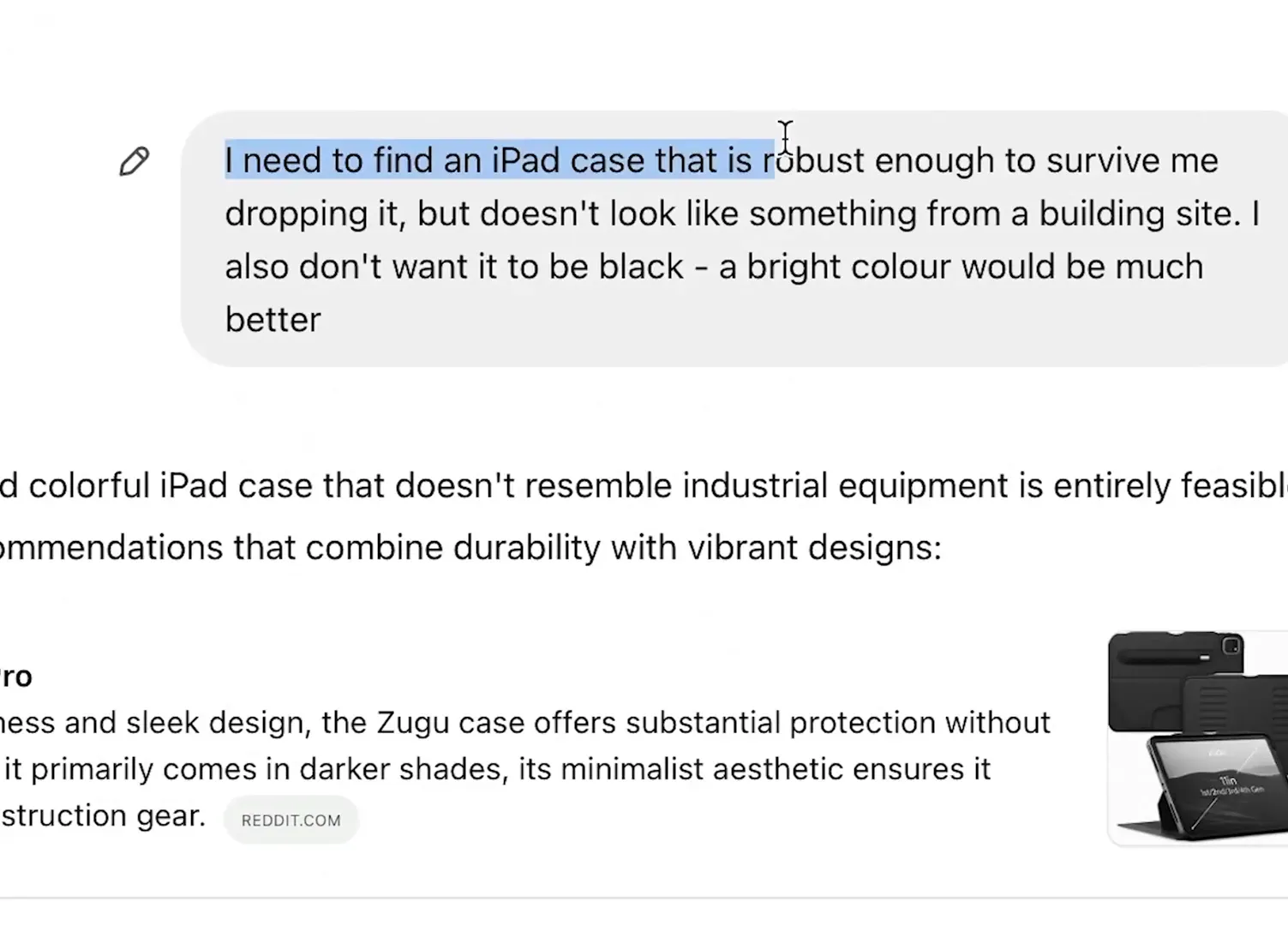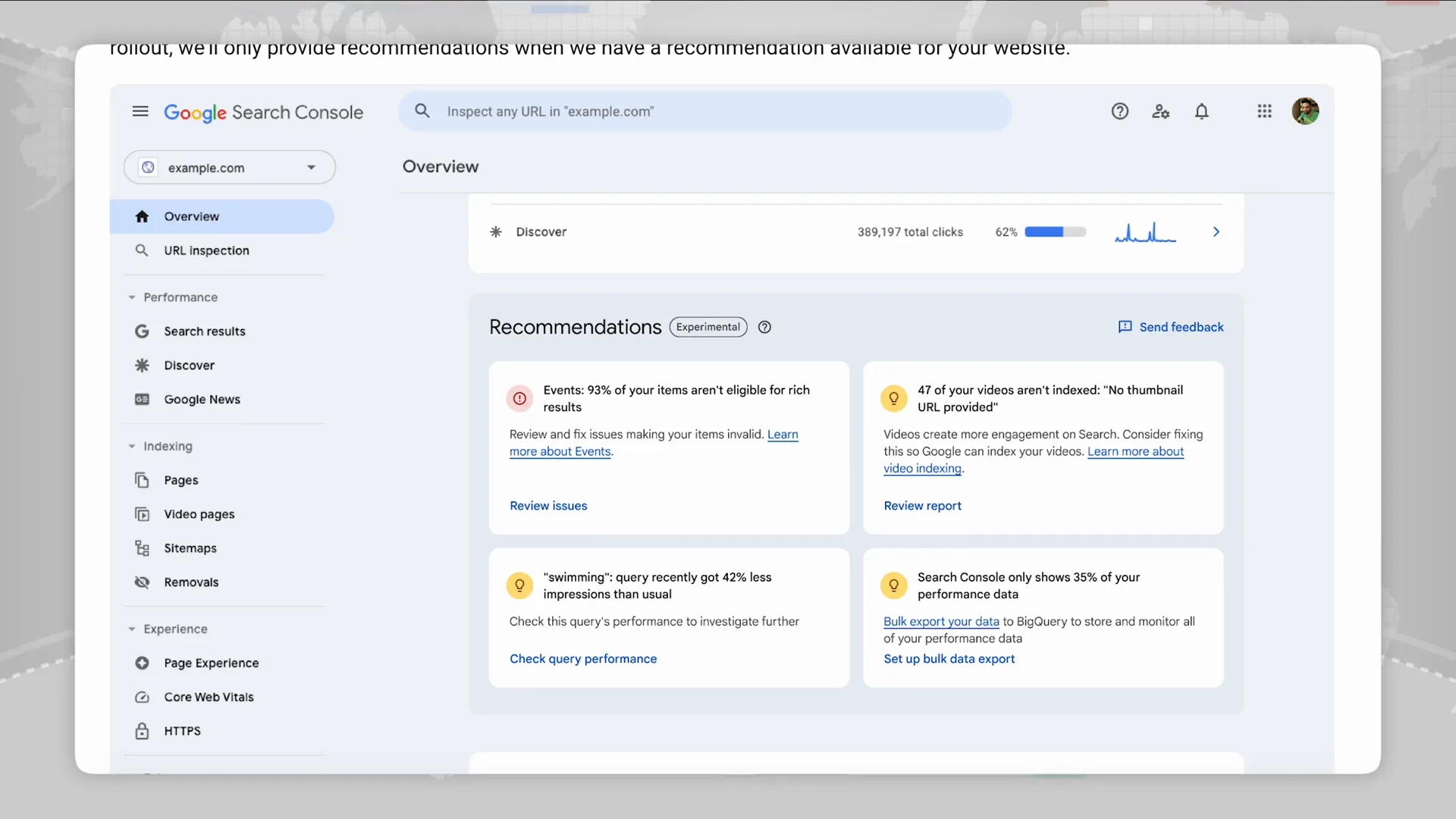As ChatGPT surges to 300 million weekly active users, marketers must adapt to this new landscape. In this blog, we’ll explore the hidden mechanics of how ChatGPT recommends brands and share actionable strategies to ensure your products rise to the top.
Table of Contents
- Understanding the Growth of ChatGPT
- The Challenge for Marketers
- How ChatGPT Works: A Peek Behind the Curtain
- The Limitations of Traditional SEO
- Introducing Generative Engine Optimization
- Crafting Your Content for ChatGPT
- The Importance of Data and Citations
- Leveraging Personal Experiences
- Building a Broad Online Presence
- Defining What Your Brand Stands For
- FAQ: Common Questions About Ranking in ChatGPT
Understanding the Growth of ChatGPT
ChatGPT’s user base has skyrocketed, reaching an impressive 300 million weekly active users in just four months. This rapid growth represents a staggering 50% increase, a clear sign that the platform is becoming a go-to resource for many users. As traditional search engines like Google show signs of losing traction in certain areas, marketers are increasingly focused on understanding how to leverage ChatGPT for their brands.
In this shifting landscape, it’s essential for marketers to grasp the underlying mechanics of ChatGPT. Understanding how it recommends brands, products, and services is crucial for gaining visibility. This platform operates differently from traditional search engines, emphasizing the need for a fresh approach to digital marketing strategies.
The Challenge for Marketers
As ChatGPT continues to gain popularity, marketers are faced with a unique challenge: how to ensure their brands get recommended within this AI-driven environment. Traditional SEO practices, while still relevant, are no longer sufficient on their own. The way users interact with ChatGPT requires a deeper understanding of both the platform and its algorithms.
Marketers must adapt their strategies to not only rank in search engines but also to be recognized by ChatGPT. This involves optimizing content in a way that resonates with the AI’s algorithms, ensuring that brands are not just visible but also favored in responses. The stakes are higher, and the competition is fierce as more brands seek to establish their presence in this new digital landscape.
How ChatGPT Works: A Peek Behind the Curtain
To effectively position your brand within ChatGPT, it’s important to understand how it processes information. Unlike traditional web searches that display a list of websites, ChatGPT reformulates queries, breaking them down into smaller components. These components are then searched in the background, producing web results that are summarized into coherent responses.
For instance, when a user queries something specific, ChatGPT runs several underlying searches to find the most relevant information. This means that the content on your website must be optimized for these underlying queries to ensure it is surfaced during these processes.
The Limitations of Traditional SEO
SEO has long been the cornerstone of digital marketing strategies, but it’s important to recognize its limitations in the context of ChatGPT. While SEO helps in gaining visibility in traditional search engines, it doesn’t encompass the nuances of AI-driven recommendations.
ChatGPT evaluates content based on various factors beyond traditional SEO metrics. It looks for relevance, authority, and the ability to provide comprehensive answers to user queries. This means that relying solely on SEO practices could leave brands unprepared for the evolving digital landscape.
Introducing Generative Engine Optimization
To thrive in this new environment, we need to embrace Generative Engine Optimization (GEO). This approach focuses on creating content that not only ranks well in traditional search engines but also aligns with the requirements of generative AI tools like ChatGPT.
GEO encompasses several strategies, including optimizing content for specific queries, utilizing authoritative sources, and ensuring that data is presented in a way that is easily digestible for AI. By adopting this new paradigm, marketers can position their brands to be recommended more frequently and effectively.
Crafting Your Content for ChatGPT
When it comes to crafting content that will be favored by ChatGPT, there are several key strategies to consider:
- Utilize Specific Data: Incorporate relevant statistics and citations from authoritative sources. This not only enhances your content’s credibility but also makes it more likely to be referenced by ChatGPT.
- Share Firsthand Experiences: Content that provides unique insights or personal experiences tends to resonate more with AI. ChatGPT values firsthand knowledge, which can help it make recommendations based on real-world applications.
- Optimize for Long-Tail Queries: Focus on specific, detailed queries that potential customers might ask. This will enable ChatGPT to break down your content into manageable chunks, improving the likelihood of your brand being recommended.
By implementing these strategies, marketers can enhance their visibility and relevance within ChatGPT’s ecosystem, ultimately driving more traffic and sales.
The Importance of Data and Citations
In the realm of digital marketing, data isn’t just king; it’s the entire kingdom. When it comes to ranking in ChatGPT, the incorporation of specific data and citations can significantly enhance your visibility. This isn’t just a theory—research shows that including relevant statistics and trustworthy sources can boost your chances of being referenced by ChatGPT by over 40% across various queries.
To achieve this, ensure that your content is rich in data and backed by credible sources. For example, if you’re discussing market trends, reference authoritative publications or studies. This not only strengthens your content but also aligns with how ChatGPT processes and evaluates information.
Leveraging Personal Experiences
While data and statistics are crucial, personal experiences add a unique layer of authenticity to your content. ChatGPT thrives on firsthand knowledge, as it often refers to real-world applications when making recommendations. Sharing your own experiences or case studies can set your content apart from the competition.
For instance, if you’re in the home improvement industry, narrating a personal story about a successful project can resonate with users. This not only builds trust but also gives ChatGPT a specific context to pull from when responding to related queries.
Building a Broad Online Presence
To maximize your chances of being recommended by ChatGPT, it’s essential to cultivate a broad online presence. This means ensuring that your brand, products, and services are mentioned across various platforms. The more visibility you have, the more likely ChatGPT will draw from this information when generating responses.
Engage in digital PR efforts to get featured in both mainstream media and niche publications. Participate in forums, contribute to industry blogs, and collaborate with influencers. Each mention enhances your brand’s credibility and helps ChatGPT understand the context in which your products exist.
Defining What Your Brand Stands For
Clarity is key when it comes to what you want your brand to be known for. This involves defining your unique value proposition and consistently communicating it across all your content. When ChatGPT processes information, it looks for recurring themes and concepts associated with your brand.
For example, if you’re a skincare brand focused on natural ingredients, ensure that your content consistently emphasizes this aspect. Over time, as ChatGPT ingests more information about your brand, it will begin associating you with those key attributes, ultimately affecting how it recommends your products.
FAQ: Common Questions About Ranking in ChatGPT
1. How can I ensure my content is referenced by ChatGPT?
Focus on creating high-quality content that includes specific data, statistics, and citations from authoritative sources. Sharing personal experiences also enhances your content’s credibility.
2. Does SEO still matter for ChatGPT?
Absolutely! While traditional SEO techniques are important, they are just one part of the equation. Generative Engine Optimization (GEO) is essential for ensuring your content is optimized for ChatGPT’s unique algorithms.
3. What role does my online presence play in ranking?
A broad online presence is vital. The more your brand is mentioned across various platforms—be it blogs, news articles, or forums—the higher the chances ChatGPT will reference you in its responses.
4. How often should I update my content?
Regularly updating your content ensures it remains relevant and accurate, which is crucial for both SEO and ChatGPT recommendations. Aim to refresh your content at least once every few months.
5. Can I influence what ChatGPT recommends?
Yes, by strategically crafting your content, optimizing it for relevant queries, and ensuring your brand is widely recognized online, you can influence how ChatGPT perceives and recommends your offerings.









